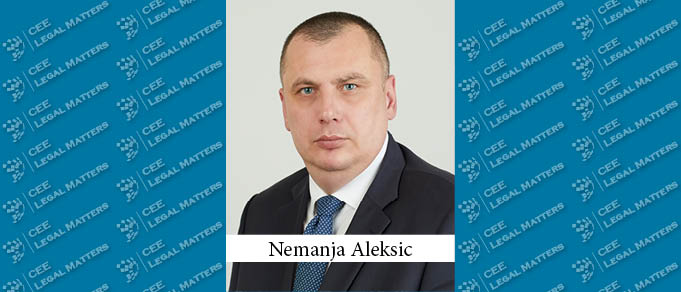On the wave of the pandemic of the Covid-19 virus and electronic business, it turned out that 2020 was the key year for the issue of digitalization of assets and financial resources. Until then, the unregulated and mostly uneven actions of financial actors imposed as an imperative further digitalization and the necessity of monitoring and harmonizing global contemporary tendencies related to digital assets.
The Republic of Serbia has recognized the need to improve the business environment, to encourage the domestic IT sector, not only in the field of blockchain technologies, but also in the field of information and communication technologies. In accordance with international standards, the Republic of Serbia has responded to the challenge posed by the global capital market of the 21st century and for the first time introduced the institute of digital assets into its legislation, which includes any virtual assets, i.e. a digital record of value that can be digitally bought, sold, exchanged or transferred and that can be used as a medium of exchange or for investment purposes. With the adoption of the Law on Digital Assets ("Official Gazette of RS", No. 153/2020; hereinafter "the Law"), the National Assembly defined the virtual currency and digital token as two relevant types of digital assets, but at the same time excluded from the definition of digital assets digital currency records that are legal means of payment, as well as other financial assets that are already regulated by existing / other regulations.
By enacting this Law, the Legislative Body of the Republic of Serbia created a regulatory framework for issuing, secondary trading, determining the supervisory authority in terms of competencies of the most invited institutions such as the National Bank of Serbia and the Securities Commission, establishing pledges and fiduciary rights, financing with investment tokens and digital assets related services.
When it comes to services related to digital assets, the legislator primarily has in mind the receipt, transfer and execution of orders relating to the purchase and sale of digital assets for the account of third parties, or for cash / funds in the account / electronic money, then services regarding replacement of digital assets, storage and administration of digital assets on behalf of users, keeping a register of liens on digital assets, managing the portfolio of digital assets and many others. In addition, stock exchanges and broker-dealer companies, as the most invited persons in the business of financial instruments, have been enabled to be part of the digital assets market.
By regulating the digital assets market, cryptocurrencies are finally regulated, and the possibility of further development and improvement of the capital market through digital technology is created, while abuses are minimized and criminal acts such as money laundering and terrorist financing are prevented. At the same time, the existence of a certain quality of service and increase of legal security of users / investors in service providers through "white paper" is guaranteed. Specifically, when issuing digital assets, a "white paper" is published, which is a document that contains information about the issuer, the assets, as well as the risks associated with digital assets.
The position of the legislator is clear that all data in the "white paper" must be accurate, complete, clear and must not lead to a wrong conclusion. As it is a document that is a condition for the initial offer of digital assets, the Law prescribes that "white paper" must be approved by the supervisory authority, and issued by the issuer of digital assets. It is obvious that the intention of the legislator in this case is to enable investors to make an informed investment decision and increase legal certainty.
In the wake of the initial offer, which represents the beginning of trade in digital assets, and having in mind one of the first jurisdictions in this area, i.e. Legislative solution of the Republic of Malta (Virtual Financial Assets Act), the legislator of the Republic of Serbia also regulated the conditions for obtaining a license for providers of services related to digital assets. At first glance, domestic conditions are set much more flexibly than Maltese, but certainly extremely important is the regulation by which service providers in order to obtain the permission of the supervisory authority are required to meet the statutory personnel, organizational and minimum capital requirements.
In parallel with the Law, the National Assembly amended the tax legislation, and prescribed the addition of digital assets as assets to be taxed. However, although the Law has excluded from its provisions the "mining" of digital assets as such, we note that any subsequent disposal of digital assets acquired through “mining” is both the subject of the Law and the subject of the above-mentioned tax amendments adopted subsequently, which makes the issue of “mining” even more interesting.
It seems that the Covid-19 crisis was crucial for us to reorient towards a more inclusive financial future, because what was considered a legal gap in this case proved to be an opportunity to bring the business of developed and developing countries closer and an opportunity to attract foreign investment. As the Law entered into force on December 29, 2020, and its implementation is scheduled for June 2021, it remains to be seen what challenges and potential issues may arise when interpreting and implementing the provisions in order to achieve financial stability in digital assets business.
By Nemanja Aleksic, Founding Partner, Aleksic & Associates




